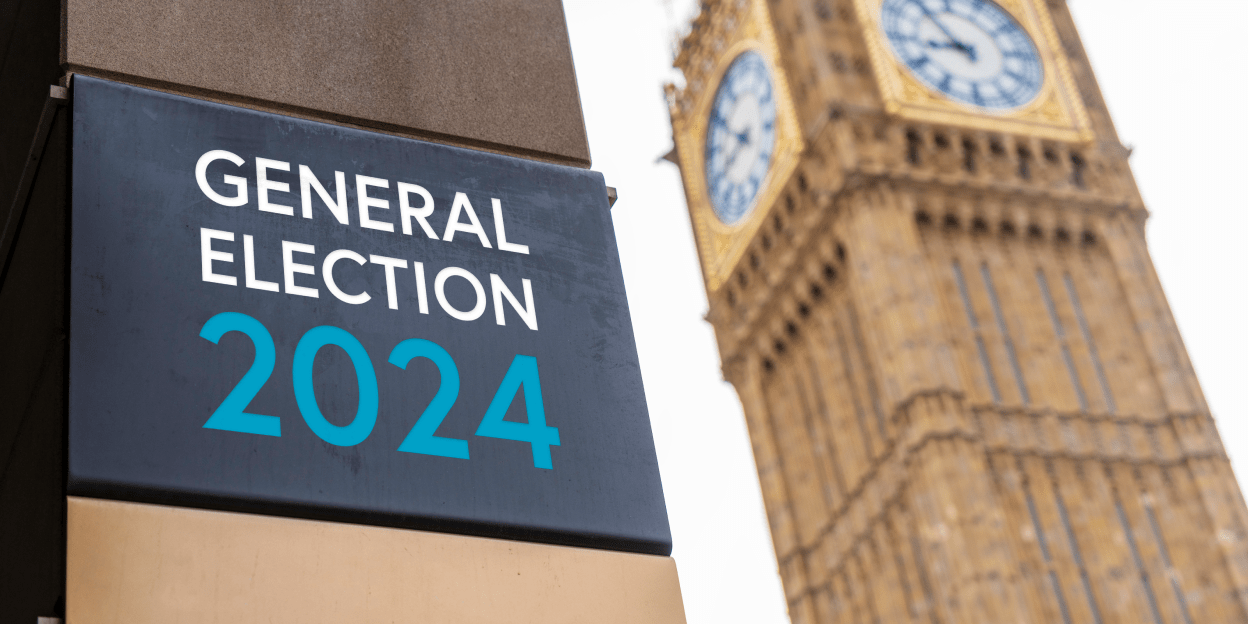The 2024 General Election will shortly be upon us, and many businesses are wondering how consumer behaviour will change as a result. None of us can predict the outcome, but we can use insights and trends from today, as well as past events, to explore how to remain resilient as a business.
We already know what is happening in the consumer landscape – our Consumer Benchmark Report has given us plenty of insights. We know the cost-of-living crisis is still very much being felt, and businesses and consumers alike face huge financial challenges this year – our report found that 74% of people are still concerned about the rising cost of everyday items, and 44% plan to buy less this year as a result.
Several publications including Reuters have discussed how the election announcement removed a layer of uncertainty for UK markets. However, many consumers are likely to remain cautious with their spending.
How are consumers currently behaving?
The cost-of-living crisis has understandably made people reluctant to spend unless they’re getting the maximum possible value from their purchase. They expect more than a simple transaction; they want efficiency in the service they receive, and to feel valued by the business. In addition, customers expect authenticity, shared values, and for brands to be clear about their stance, no matter where they are on their ethical journey. Businesses have a lot to consider, even before moments like the election influence consumer behaviour.
Consumer behaviour across different demographics
Consumers of different demographics will react to political changes differently. For instance, younger consumers might be more optimistic and willing to spend, while older consumers are likely to prioritise savings and financial security ahead of the election and be more cautious until they understand the changes to policy better. Understanding these differences can help you tailor your generational marketing strategies to better meet the needs of the consumer groups you work with.
How did consumers behave when Labour came to power in 1997?
To examine how the consumer landscape changed with a Labour government, we must go back to 1997. When Tony Blair brought New Labour to power, the UK saw a period of economic optimism. Consumer confidence was buoyed by Labour’s promises of increased public spending and investment in public services. This optimism led to consumers spending more, particularly in the housing market, retail sector, and leisure industry. The feel-good factor associated with the new government helped stimulate economic activity and growth, demonstrating the powerful influence of political change on consumer behaviour.
How did consumers behave when the Conservatives came to power in 2010?
When the Conservatives won the general election in 2010, the consumer landscape was markedly different. The global financial crisis had left the UK economy in a precarious state, and the Conservative-led coalition government implemented austerity measures to reduce the national deficit. These measures led to reduced public spending and increased taxes, which in turn affected consumer confidence and spending. Many consumers adopted more cautious spending habits, prioritising savings and debt repayment over discretionary spending.
How can businesses respond to consumer behaviour around the election?
Although we know what happened after the country switched from one political party to another in the past, there isn’t any guarantee that those conditions will happen again. Many households will be spending less no matter which party comes to power, and there’s no guarantee that a change in government will increase confidence. Rather than attempting to predict outcomes of the election and how their customers might behave as a result, resilient businesses are utilising consumer insights to help them prepare for the inevitable shifts in the economic climate.
Make use of customer insights
Customer insights provide the essential data you need to understand and predict consumer behaviour. By analysing customer demographic information, their feedback, reviews, and purchasing patterns, you can make informed decisions, and prepare your strategies accordingly. If you’re not already interrogating your customer feedback, then a ten-minute call with a member of our team can show you the benefits of doing so.
Enhance your customer experience
During times of political and economic uncertainty, enhancing customer experience becomes even more critical. Consumers want to feel valued. Offering personalised services, addressing customer concerns promptly, and maintaining transparent communication can build trust and loyalty. Replying to enquiries and online reviews should be a priority. As we saw in our Consumer Benchmark Report, 97% of consumers are more likely to repeat purchases from merchants that reply to reviews, so this isn’t something you can afford to ignore.
Focus on value and quality
Our Consumer Benchmark Report shows that when customers decide to make a purchase, they want maximum value and quality. With the cost-of-living crisis still impacting many, consumers are more cautious with their spending – 44% plan to buy less in 2024. To be successful in this climate, emphasising the value of your products or services and maintaining the highest standards of quality are essential. Highlight how your products meet the needs and preferences of buyers, and you’ll hold the attention of consumers in a competitive market.
Embrace sustainability and ethical practices
Consumers are increasingly prioritising sustainability and ethical practices. Demonstrating a commitment to environmentally friendly and socially responsible operations can resonate with consumers and build brand loyalty. More consumers than ever are concerned with sustainability practices – a finding from the Consumer Benchmark Report showed that 74% of people say that it is important to them when they are choosing a brand.
Implementing sustainable practices – such as reducing waste and using eco-friendly materials or taking steps to improve the environment such as adding Treefo to your reviews – will attract environmentally conscious consumers. Make sure you’re sharing your efforts, but don’t be tempted to over-sell your sustainability activities. Customers are acutely aware that some businesses indulge in greenwashing, and boycott those that they suspect are doing so. Over half of UK consumers said they would stop buying from a company that they suspected had been misleading in their sustainability claims, which could result in a massive impact on your bottom line.
Stay agile and prepared
Political and economic landscapes can change rapidly after an election, and businesses must remain agile and prepared to adapt. Staying informed of policy changes and economic indicators can help you anticipate potential impacts on consumer behaviour, and being proactive and flexible in your business strategies can ensure you’re ready to navigate any challenges that may arise.
The global perspective: election impacts beyond the UK
The UK isn’t the only country heading to the polls this year. With the USA, South Africa, France, and India, (amongst others) choosing new governments, there are potentially huge ripple effects for the global economy as changes are implemented. Trade policies, international relations, and global market stability are all influenced by political shifts in key countries, so if you’re operating internationally, you’ll want to use a combination of your own customer insights and the wider context to help you understand consumer behaviour.
Leveraging customer insights for strategic decision making
Your reviews are where you’ll find some of the most valuable customer insights; they are invaluable for understanding current trends and predicting consumer behaviour. By leveraging customer feedback, surveys, and purchase patterns, you can make informed decisions about product offerings, marketing strategies, and customer service improvements. If you're not sure where to start, or aren’t collecting reviews, talk to our team – either with the live chat on our website, or by booking a 20-minute demo. We can help you collect customer insights and get the most value from them.
To read more about consumer trends, including the value exchange, download our report The Consumer Benchmark: From Transactional to Value.



